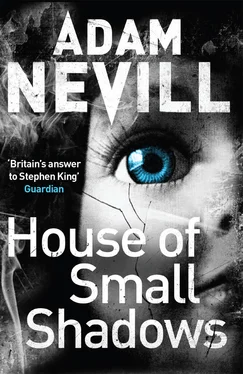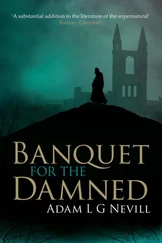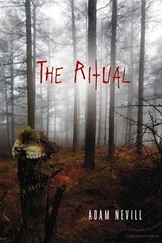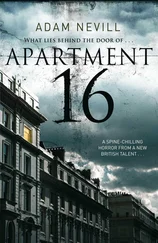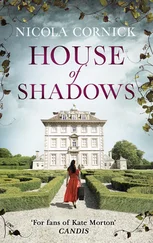‘Everyone? I’ve been to the village. It’s empty.’
‘Empty?’ Edith turned her frowning face to Maude. ‘What does she mean?’
Maude stared at Catherine in disapproval tinged with pity.
‘Our local traditions take a great deal of time to prepare. And you are expected. It would be selfish, heartless, to disappoint us all. Don’t you think?’
‘Ma’am, please. I’ve been here two days and I still haven’t begun the valuation. There are other things I—’
‘There will be time enough to admire our things. After the pageant. Now come along, dear. I am not accustomed to repeating myself.’
‘Why do you need to measure my head?’
Catherine yawned, again. Sleep pulled at her edges and softening corners. Maude’s hard hands prompted her body to stay upright with short tugs and prods whenever she felt herself start to lean. She was sick of apologizing. ‘Sorry’ when she swayed. ‘Sorry’ as she blinked herself back awake. ‘Sorry’ as she moved an arm to stifle a yawn.
Country air and the four miles she’d walked to and from the village had left her dead on her feet. The deep hot water of the bath she had taken in Edith’s own bathroom had been preceeded by a bowl of mutton broth she’d wolfed down with a portion of home-made bread in the dining room. The medicine Maude spooned into her mouth for her chill had been bitter but instantly warming. And now she’d stopped moving, her head and body felt heavy and she desperately wanted to sleep. In her dimming thoughts, she was concerned at how tired, at how unfit she was, but a confrontation about skipping dinner and retiring early had to be risked. ‘I’m sorry, but… I’m so tired. And I need to—’
‘Not long now, dear.’ Edith turned her face to Maude, who fussed behind Catherine, and she urged the housekeeper to hurry with no more than a frown. ‘And then we shall get you to bed. You need to rest after this morning’s foolish escapade.’ Edith’s voice softened, was almost soothing, as if Edith Mason was calmed by the sight of Catherine stood before the long oval mirror, dressed in white like a daughter who was to be a bride.
And Catherine nearly thanked her host for granting her sleep. She would go to bed, have a nap, then resume… no, begin the valuation… No… she would leave later, tonight. Her thoughts swam and sank without trace.
She had been escorted from the dining room to Edith’s own bathroom on the second floor, then collected again and returned to the utility floor. She’d felt like a patient in an old hospital. So many stairs, doors to be unlocked, aprons and long skirts swishing, wheels turning.
And the one-piece dress she now wore had been waiting upon the wooden bust in Violet Mason’s ‘sewing room’. A place sealed behind a locked door close to M. H. Mason’s workshop.
Wicker baskets overflowing with costumes lined one wall of the room, beneath shelves cluttered with paints and craft materials. Carpentry had not been beyond Violet Mason either. Unusual for a woman of her time, but the vintage tools, and the bench still littered with twine and timber, buttons and cloth, revealed evidence that great labours had been undertaken in the room to support her brother’s vision.
Catherine’s own vision swam. So she focussed on the dress, bowing her head to see the embroidered cotton. From the 1920s, she thought, with the elbow-length sleeves and no waist. Edith had said, ‘Nothing else will fit you. My mother was petite. She carried me at the time she wore this.’
She had been too sleepy to be offended, though the insult helped to revive her enough to become aware of the dress’s scent. From the ancient gown wafted a fragrance of stale perfume trapped in fine cloth, and of the wooden furniture that had stored the garment for decades. The fabric was unmarked, but had sallowed to an ivory tinge along the seams and at the edge of the lace hems.
She disliked the transforming effect of the dress in the dark mirror. Bare-legged, her hair tousled where it had dried without styling, under dim coppery light from an overhead bulb, the dress faded her sense of herself. But also distinguished her anew with a fresh identity, as though she existed in a photograph taken from an old cardboard box after a funeral, from a collection where the bronze images of mustachioed men in uniform, and little girls in ribbons and white dresses, suddenly confronted the onlooker with a sense of origin, and an insignificance they had not considered before.
Behind her image in the mirror, Edith’s bleached face hovered, disembodied from the avian form so tightly wrapped in a high-necked gown of black silk. Maude must have changed her mistress while Catherine bathed in the cast-iron tub, filled with steaming green water and fragrant with salts she could not identify, that was waiting for her and most welcome after her meal. She wished she was still inside the perfumed water now, soaking, dozing.
Her eyes closed. She tried to remember the bathroom to stay awake. It had a bath made no later than the 1880s. A tub mounted on ball feet. A unit with an old steel needle and spray shower fixed around the enormous taps. She’d never seen one before. Carved mahogany cabinets on the walls. Tiles hand-painted with wildflowers. Like taking a bath in someone’s study.
Maude jerked her awake.
‘Sorry.’
Aches had crept into her spine and her skin was sensitive. The sun’s warmth had reached her too late and she had a chill. She’d never been good in the rain. The white noise of anxiety and the exhaustion of London had permanently impaired her immune system. Maybe the terrible stench of the workshop and the hives had stayed inside her, too, poisoned her. But she had no temperature. Her stomach was fine. She had difficulty swallowing, though. Her throat was hot and dry.
She needed to go home. Needed to be in her own bed, dosed with paracetamol. She wanted to call her mother.
Was she well enough to drive? Once she was in bed, after a few hours’ rest, maybe she could leave a note and slip away. And go home.
Before it was too late.
Where had that thought come from? She mustn’t let herself think like that. She’d been told. She knew what to do when she had thoughts like that.
The dress was removed, slipped over her head. She was quickly covered in a quilted dressing gown.
Maude helped her back to her room as if she was the old woman who needed care. And once Catherine was settled in bed, she noticed Maude’s eyes were wet with tears. It was the last thing she saw before her eyes closed of their own accord, and her mind turned over and slid backwards into a bottomless and irresistible unconsciousness.
‘You’s comin’ up the big house wiv us, Caff?’
Catherine stood up in the wet den and started to cry.
Up on the hill of the special school, the boy with the painted wooden face held the hand of her best friend, Alice, who had been missing for three months. One lens of Alice’s glasses shone in the grey light of late afternoon.
Catherine was forbidden to come here. She’d returned to remember Alice.
The last time she visited the den, that distant, bright time with sunlight bathing the ecstasy of finishing a school year, Alice went through the hole Catherine made in the green fence. In July. It was September now, and only four months until Christmas.
Alice started down the grassy slope towards the new fence the council had built. ‘They’s callin’, Caff. Hear it?’
And that was exactly what Alice said to her as Catherine poured invisible tea into greening plastic teacups at the beginning of the summer on the very day Alice vanished. And precisely what Catherine had told her parents when she arrived home, wet through and crying. It was also what she had told Alice’s mother and the police ladies and her nan.
Читать дальше
